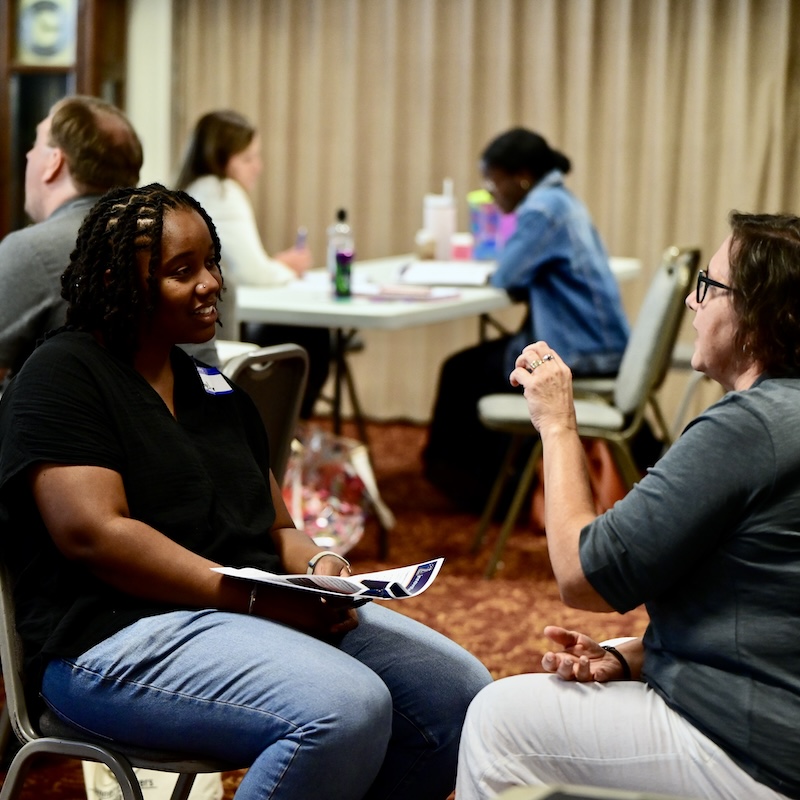
The Center for Youth Ministry Training is in the process of building a collaborative relationship with a business. My friend who owns the business has commented through the process about how hard it is to work with churches or churchy organizations. If you work in a church or a churchy business, you know that he is right; but why…
The main challenge of churches is answering the questions who is in charge. Is it the pastor? Is it the church council? Is it the person in the church with the most money? Or could it possibly be God? At CYMT, we have worked with over 30 churches and we find that every congregation is different.
As good American’s, we make ridiculous claims by trying to make God’s church out church. It’s our parking spot, our pew, and our worship service. We think more highly of our opinions than we do of God’s, when it comes to worship style, decorations, and the length of the pastoral prayer.
Our pastor should preach to us – not to much challenge that might make us uncomfortable, not to many jokes, not just a story teller, and not to much Bible. Don’t even think about singing a new song, using a guitar, or using a screen; but if you have these things, then don’t play the organ or have a liturgical moment cause our church doesn’t do that.
Churches are made up of broken people. We put financial people on the finance committee because that seems to make sense but then the churches finances become logical and when was Jesus ever logical? We put lawyers on administrative boards because that makes sense, but how many risky lawyers have you ever met? We put them their to help keep us safe, but since when is following Christ safe? We elect politicians of all types to be on ever type of committee in the church so that we can spend all of our time arguing over what should be done instead of doing anything.
Our second problem is that every three or so years we rotate the leadership. Folks can’t wait to get off the stewardship team or the personnel committee. If you can’t get something passed, just wait a third to half of the committee will change the next year and will not know anything about your idea. Therefore, we are visionally challenged because those who cast a long term vision rarely get to carry it out and thus vision drift happens unintentionally.
I am blessed at CYMT to have an amazing board of people who are entrusted with its mission and vision. I am the Executive Director and my job is to bring that mission and vision to fruition. We certainly have our churchy moments. One of our challenges as a board is how to catch members up on all the decisions that have been made in the past. But we still are a group of good hearted people challenged to lead our ministry forward faithfully.
So what makes the difference? TIME builds TRUST!
First, the church has got to find ways to allow people to serve as leaders longer. Just about the time folks figure out what their committee or team is supposed to do, they move to another committee. If we look around at business and sports models, we’ll notice that the amount of time a group spends together is directly related to their success. Sometimes, we see flash in the pan ministry moments; but if they sustain themselves time becomes a key ingredient. How can we build time into our leadership models?
Second, trust is essential. Time and trust are related. Time allows for stronger relationships that lead to trust. My board must trust me to lead our ministry. If they do not, we will most definitely not move forward and will probably move backward. Trust is earned over time as a leader has the opportunity to repeatedly demonstrate their commitment to the mission and vision.
Business’ measure risk vs potential quickly. They are designed to do so because only a few hold the decision making power. There is no question who is in charge. Churchy organizations have more people who must understand the risk vs. potential. They tend to do this slowly and often miss opportunity because of their inability to respond quickly.
As a leader of a church or ministry, you must be attentive to developing your leaders over time and establishing relationships of trust. The stronger the bond of trust the more responsive your team, committee, or board will be when an opportunity comes along or when it is time to expand the vision. The more time your folks have spent with the mission and vision or your church or organization the greater their ability to see opportunity.
Finally, a weakness and a strength of churchy organizations is that after they have made a decision they will stick with it to a fault. They rarely evaluate decisions and they usually only change directions when primary leadership changes (if they disagree with previous direction).
So, establish a leadership group that develops trust over time and lead your church or ministry faithfully into the future and please don’t forget to include God in your decisions.
What else do you find hard about Churchy work?



Subscribe to receive a monthly roundup of fresh insights and free tools for senior ministry leaders.